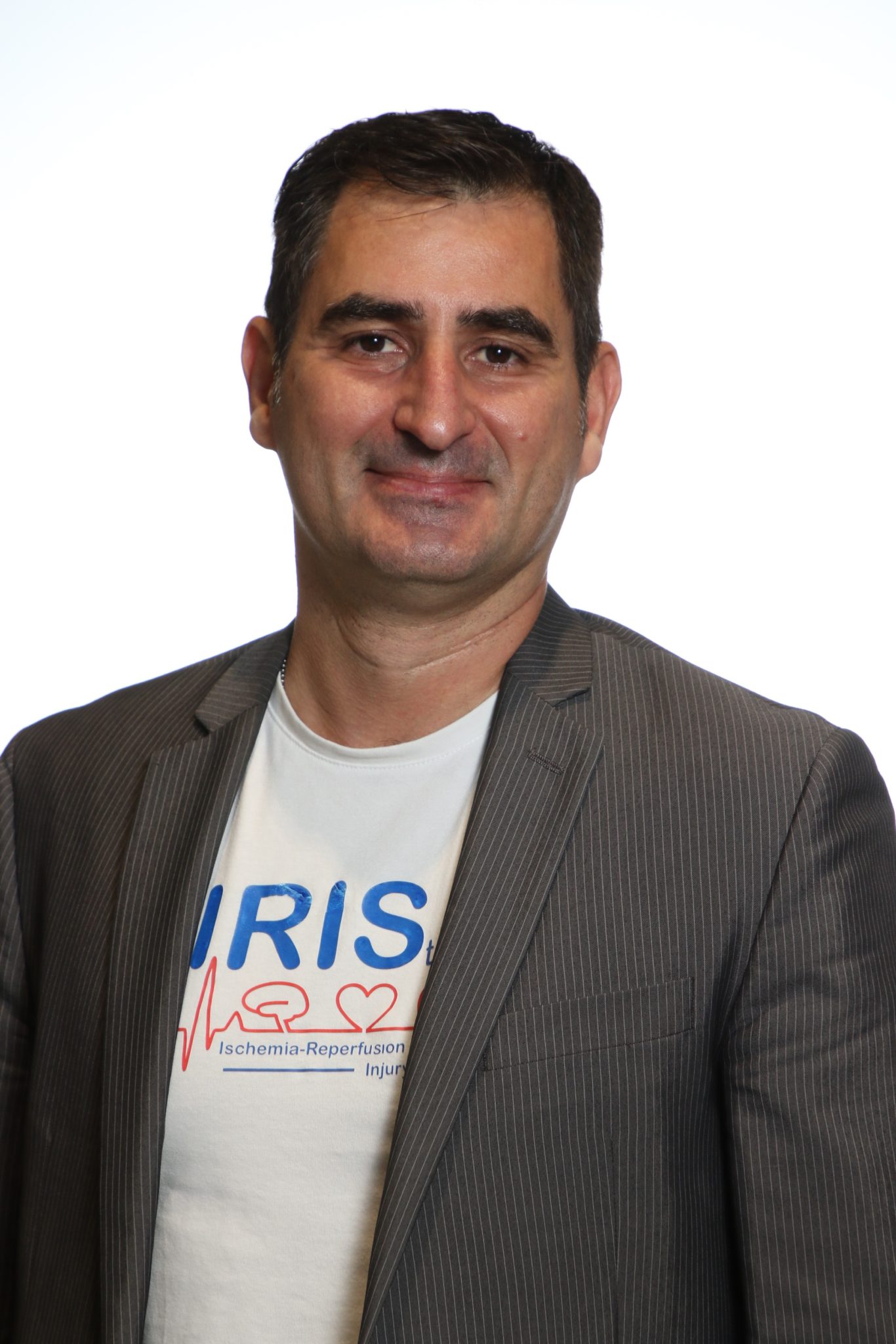
About
Ludovic Gomez (Ph.D.) is a senior Researcher in the IRIS team of the CarMeN laboratory in Lyon (France).
In close collaboration with the Clinical Investigation Center and the Cardiology service of the Hôspices Civils de Lyon, his main research focus is to develop translational research, for the development of new protection strategies, targeting cell metabolism and signal transduction in ischemia-reperfusion syndromes, including myocardial infarction, and more recently, post-ischemic heart failure (HFrEF).
In parallel with his translational research, Ludovic Gomez led the in vivo exploration platform (iXplora) from 2019 to 2024, which allows him to extend his area of expertise to complementary models such as stroke and diabetic cardiomyopathy. In addition to these scientific and managerial activities, he actively participates in the training of students « in » and « by » research, and in the evaluation of research projects of the various calls for tenders.
Expertises
- Translational research from molecular mechanisms up to pre-clinical and clinical studies
Award, Scientific Price, Honors:
- ANR-JCJC 2016 CARDIOCARE (PI: Ludovic Gomez, CARDIOCARE)
- Co-investigator in Wills vision research center at Jefferson innovation Grant 2014: the change in mitochondrial dynamics and the molecular mechanisms in the trabecular meshwork of patients with glaucoma.
- ExploraPro Grant 2013 (collaboration with Dr. Sheu, Philadelphia)
- New researcher INSERM 2013
- Research subvention from Biopharma laboratories 2011
- New Investigator Travel Awards from AHA 2010 for Basic Cadiovascular Sciences Conference, California USA and
- New Investigator Travel Awards from Fondation cœur et artère 2011 for American Heart association conference, Orlando, Florida
- Young researcher grant from SERVIER laboratory 2008 and 2009
- Scientific prices from Groupe de Réflexion sur la Recherche Cardiovasculaire 2004 and 2005
- Regional Grant EMERGENCE 2002-2005
5 major publications:
- SERCA2 phosphorylation at serine 663 is a key regulator of Ca2+ homeostasis in heart diseases. Fabrice Gonnot, Laura Boulogne, Camille Brun, Maya Dia, Yves Gouriou, Gabriel Bidaux, Christophe Chouabe, Claire Crola Da Silva, Sylvie Ducreux, Bruno Pillot, Andrea Kaczmarczyk, Christelle Leon, Stephanie Chanon, Coralie Perret, Franck Sciandra, Tanushri Dargar, Vincent Gache, Fadi Farhat, Laurent Sebbag, Thomas Bochaton, Helene Thibault, Michel Ovize, Melanie Paillard & Ludovic Gomez. Nat Commun. 2023 Jun 8;14(1):3346. doi: 10.1038/s41467-023-39027-x.
- The SR/ER-Mitochondria calcium crosstalk is regulated by GSK3β during reperfusion injury. L Gomez, PA Thiebaut, M Paillard, S Ducreux, M Abrial, C Crola Da Silva, A Durand, MR Alam, F Van Coppenolle, SS Sheu, M Ovize. Cell Death Differ. 2015 Jul 24. doi: 10.1038/cdd.2015.101.
- A novel role for mitochondrial sphingosine-1-phosphate produced by sphingosine kinase-2 in PTP-mediated cell survival during cardioprotection. Gomez L, Paillard M, Price M, Chen Q, Teixeira G, Spiegel S, Lesnefsky EJ. Basic Res Cardiol. 2011 Nov;106(6):1341-53. doi 10.1007/s00395-011-0223-7
- Inhibition of GSK3beta by postconditioning is required to prevent opening of the mitochondrial permeability transition pore during reperfusion. Gomez L, Paillard M, Thibault H, Derumeaux G, Ovize M. Circulation. 2008 May 27;117(21):2761-8. https://www.ahajournals.org/doi/10.1161/CIRCULATIONAHA.107.755066
- Inhibition of mitochondrial permeability transition improves functional recovery and reduces mortality following acute myocardial infarction in mice. Gomez L, Thibault H, Gharib A, Dumont JM, Vuagniaux G, Scalfaro P, Derumeaux G, Ovize M. Am J Physiol Heart Circ Physiol. 2007 Sep;293(3):H1654-61. doi: 1152/ajpheart.01378.2006

